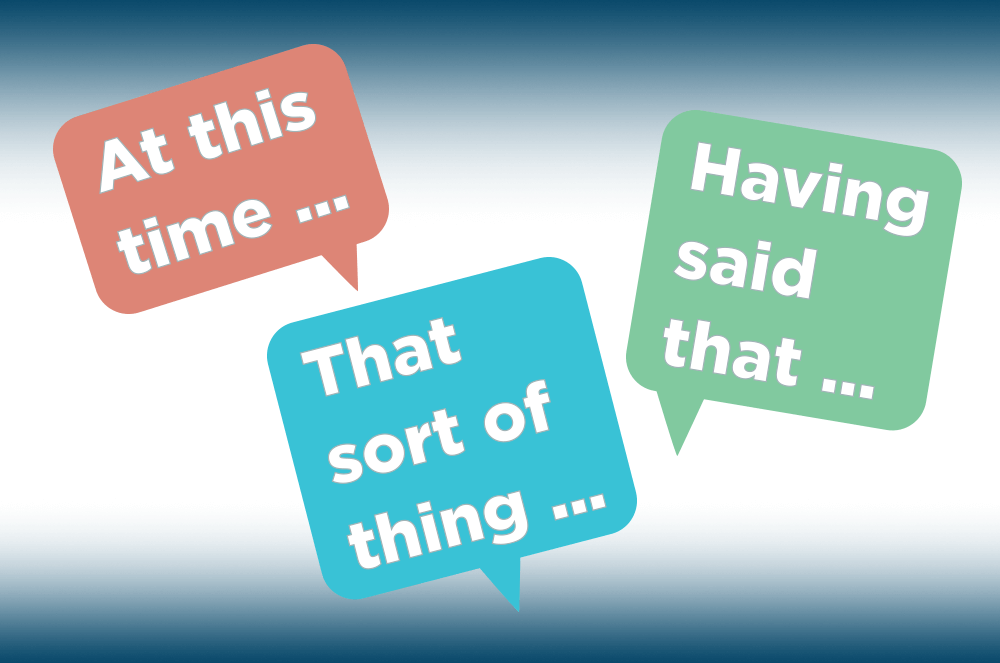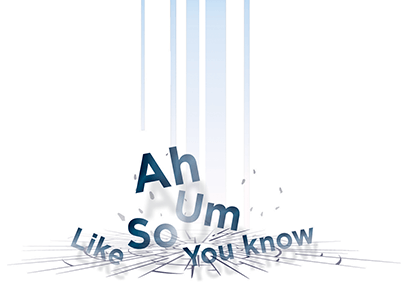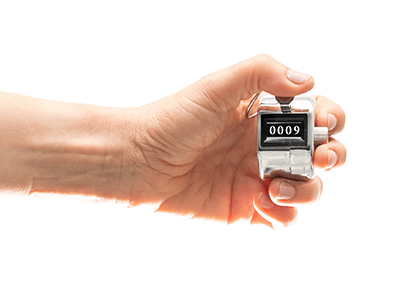
Not long after I joined Toastmasters, I realized just how important the grammarian and Ah-Counter roles could be in helping to improve the way I communicate with others. I learned that words such as “um” and “so” should be eliminated because they serve no useful purpose, distract from what we are attempting to communicate, and cause us to appear less than professional.
That’s when I started thinking about how, with the help of Toastmasters, I needed to improve my level of communication, not just when I was giving a speech, or replying to a Table Topics® question, but always.
With that in mind, I suggest we expand the list of what we think of as “filler words.” Shouldn’t any word or combination of words that are unnecessary be considered fillers?
Here’s an example: Occasionally you will hear a speaker say, “Having said that,” or “As I said before.” Is that necessary? Don’t we know what they just said? Do they think we forgot?
You can train yourself to spot words and phrases that are superfluous. More importantly, you can make sure you never say them, whether in a speech or in conversation.
The list goes on. “At this time …” “I would like to …” “Without further ado …” “All in all …” The sentences that contain phrases like these would be just fine without including these unhelpful expressions. You can make your speeches and conversations more succinct and to the point by omitting them.
Taking it a step further, there are also some filler words or expressions that are not just unnecessary, but offensive. What do you think when someone says, “I’ll be honest with you”? I restrain myself from blurting out, “Does this mean that you haven’t been honest with me up to this point in our conversation?”
Shouldn’t any word or combination of words that are unnecessary be considered fillers?
The same could be said about “with all due respect.” Shouldn’t I just assume that you are being respectful without you having to remind me?
How do you like it when someone begins a sentence with, “Listen …” or “Look …”? Why are they telling me what to do? Don’t they think that I am already listening?
Some speaking techniques, when used effectively, can keep audiences engaged and maybe even persuade them to follow your call to action. However, when used incorrectly, they are nothing more than a distraction.
For example, enumeration—when someone is trying to make a point and begins by saying, “Number one …” I have heard many speakers continue to explain what number one is without then going on to number two. I get so distracted waiting to hear what number two is that I begin to lose focus.
What about reiteration? You may have heard someone say, “I told him over, and over, and over, and over again.” Really? Limit it to just a couple, or maybe a maximum of three repetitions and then move on to the point.
Have you noticed how often someone begins speaking by saying, “Well … ”? In nearly all cases, the sentence would be just fine without this word. Therefore, let’s add “well” to our list of filler words or expressions.
Well, yeah, okay then, let me, if you will, ask you this. (Oops, sorry, I just couldn’t resist, but you get the idea.)
How can your club start looking beyond the usual filler words? One of my clubs uses the grammarian role to supplement the Ah-Counter. While the Ah-Counter tracks how many times speakers use the standard filler words, the grammarian focuses on words that are unnecessary and take away from the speech or cause the audience to lose focus.
When you expand your list of filler words, consider including these unnecessary words or phrases as ones to avoid in speeches, as well as everyday communication. (And add in a few of your own!)
- At the end of the day …
- Quote, unquote …
- That sort of thing …
- And so on and so forth …
- … and stuff.
Will Neuman, DTM joined Toastmasters in 2013 and is a member of Talk of the Town Toastmasters in Batavia, Illinois, and Fountain Hills Toastmasters in Fountain Hills, Arizona.
Related Articles

Communication
Drop Those Crutches

Meeting Roles
Counting on the Ah-Counter

Presentation Skills



 Previous
Previous

 Previous Article
Previous Article